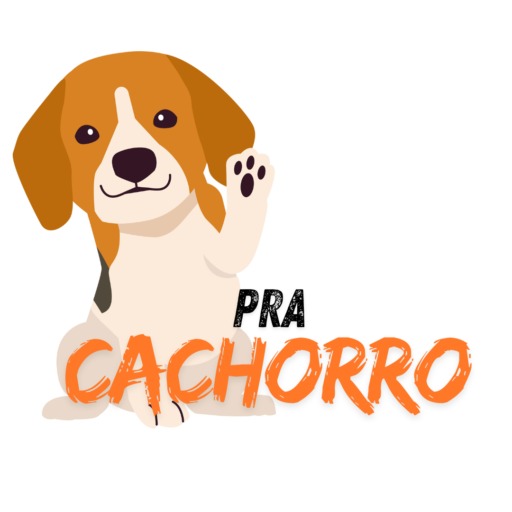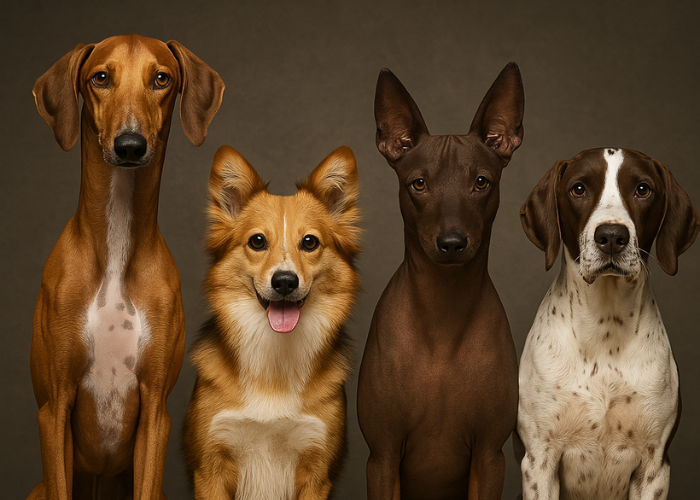The arrival of celebrations and festive events like New Year’s Eve and summer festivals brings joy to many people, but for dogs, it can be an overwhelming and stressful time. The loud noise of fireworks is one of the primary causes of fear and anxiety in pets, leading to behaviors such as trembling, excessive barking, escape attempts, and even health issues due to stress.
Understanding why dogs are afraid of fireworks and how to help them cope is essential for ensuring their well-being. In this article, we will explore the reasons behind this fear and provide effective strategies to minimize the negative impact of fireworks on your furry friend’s life.
Why Are Dogs Afraid of Fireworks?
Highly Sensitive Hearing
Dogs have a hearing ability far superior to that of humans. They can detect sounds at frequencies and volumes that go unnoticed by us. The loud, unpredictable nature of fireworks can be extremely uncomfortable and even painful for them.
Unpredictability
Unlike other sounds, fireworks occur suddenly, with varying intensity and frequency. This unpredictability can confuse and frighten dogs, as they struggle to identify the source or reason for the noise.
Negative Associations
If a dog has previously had a bad experience with fireworks—such as feeling pain or getting startled—it may associate the sound with danger, intensifying its fear in future instances.
Survival Instinct
A fear of loud noises is a natural survival mechanism in many animals. Fireworks can be perceived as a threat, triggering a fight-or-flight response and leading to behaviors such as hiding or attempting to flee.
Signs of Fear and Anxiety in Dogs
Recognizing the signs of fear is the first step in helping your dog. Common symptoms include:
- Trembling or shivering
- Excessive barking or whining
- Hiding or attempting to escape
- Panting and excessive drooling
- Loss of appetite
- Destructive behavior, such as scratching doors or furniture
How to Help Your Dog Cope with Fireworks
Create a Safe Space
Set up a quiet, comfortable area where your dog can feel protected. A room with closed doors and windows, away from external noise, works best. Provide blankets, favorite toys, and familiar scents to create a reassuring environment.
Use Calming Sounds
Play soothing music or leave the TV on to help mask the sound of fireworks. There are special playlists and apps designed to calm anxious dogs during stressful events.
Stay Calm
Dogs are highly perceptive and can sense their owners’ emotions. If you appear anxious or worried, your dog may become even more nervous. Maintain a calm demeanor to provide reassurance.
Avoid Punishment
Never scold your dog for being afraid. This can heighten anxiety and damage your bond of trust.
Consider Calming Products
Calming collars, synthetic pheromones, and natural supplements can help reduce stress. Consult a veterinarian to determine the best option for your pet.
Desensitization Training
Gradually expose your dog to recorded firework sounds at a low volume, increasing it over time while associating the noise with positive experiences like treats or playtime. This helps them build tolerance and reduces fear.
Avoid Leaving Your Dog Alone
Whenever possible, be present during stressful moments. Your presence offers comfort and security to your pet.
Precautions During Celebrations
- Updated Identification: Ensure your dog wears a collar with an up-to-date ID tag. If they escape, it will be easier to find them.
- Exercise Before Fireworks: Take your dog for a long walk before fireworks start. Physical activity helps reduce anxiety and promotes relaxation.
- Avoid Direct Exposure: Never take your dog to a fireworks display. This can heighten fear and lead to long-term trauma.
When to Seek Professional Help
If your dog’s fear is severe, consider consulting a professional trainer or animal behaviorist. In extreme cases, a veterinarian may recommend medication to help manage anxiety during high-stress events.
Conclusion
A fear of fireworks is common in dogs, but with the right strategies, you can minimize their stress and ensure their well-being. Creating a safe environment, providing comfort, and using desensitization techniques are key steps to helping your pet cope.
Remember, every dog is unique and may react differently. The most important thing is to respect your pet’s limits and offer support when needed. With patience and care, you can turn moments of fear into opportunities for strengthening your bond with your furry friend.
Frequently Asked Questions
1. Why is my dog so afraid of fireworks?
Dogs have sensitive hearing and a natural survival instinct. The loud and unpredictable noise of fireworks can be perceived as a threat, causing fear and anxiety.
2. How can I prepare my dog for firework-heavy celebrations?
Create a safe space, use calming sounds, stay calm, and consider veterinarian-approved calming products.
3. Can I help my dog overcome its fear of fireworks?
Yes, techniques like desensitization and positive reinforcement can help your dog become more comfortable with firework noises.
4. Should I give my dog medication for fireworks anxiety?
Consult a veterinarian before giving any medication. They can recommend the best solution based on your dog’s specific needs.
5. Will leaving my dog alone during fireworks make their fear worse?
Yes, being alone can increase anxiety. Whenever possible, stay with your dog to provide reassurance and comfort.



